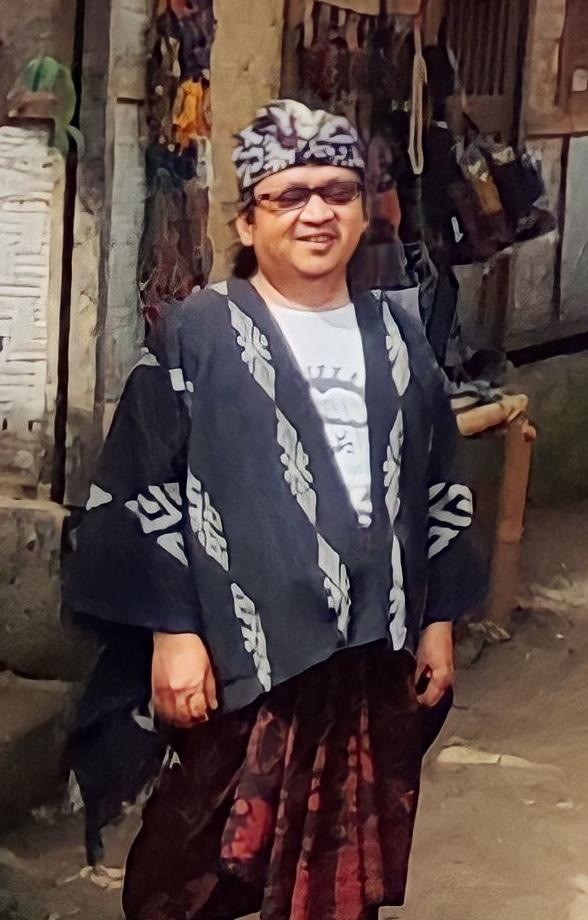Championing innovative evidence-based advocacy
The need to explore new and innovative ways of addressing inequity and social exclusion faced by people with disabilities was emphasised by 2022 International Day for People with Disabilities theme ‘Transformative solutions for inclusive development: the role of innovation in fuelling an accessible and equitable world.’

With access to the right skills and tools, Organisations of People with Disability (OPDs) are contributing to the growing demand for high-impact evidence-based advocacy by recording and sharing stories told by people with disabilities.
The Nossal Institute has partnered with Sentra Advokasi Perempuan Difabel dan Anak (SAPDA), an OPD from Indonesia, to produce a series of digital stories about the impacts of stigma on people with disabilities.
Stamping out stigma through storytelling
That stigma contributes towards the discrimination and exclusion of people with disabilities is well known. Negative and limiting attitudes towards stigmatised groups are often based on shared beliefs and misconceptions, stereotypes, and prejudices. When dominant narratives about people with disabilities are directed by others, stigma is more likely to thrive. Limited representation and negative portrayals of people with disabilities have contributed to stigma in Indonesia.

The media used to portray people with disabilities as victims and objects of pity who need help all the time. Now people with disabilities are seen as an empowered group capable of fighting for their own rights. But positive stories about people with disabilities are still missing from mainstream and social media. Sholih Muhdlor, SAPDA
These voices are often absent in the meeting rooms of government and non-government organisations where decisions that impact people with disabilities are made. In these spaces, narratives contributing to stigma are socially reinforced with wide-ranging consequences.
Storytelling is common to all cultures, but is underutilised in applied research and disability inclusion advocacy. Storytelling provides opportunities for people with disabilities to share experiences and perspectives on issues of inequity and offer solutions to barriers to inclusion. Importantly, re-authoring old and forging new narratives has the power to change attitudes.
Using digital storytelling to create advocacy products
The Nossal team provided training to SAPDA staff in ethics and research integrity, digital storytelling techniques and multimedia production. Digital stories are short videos portraying a person reflecting about a personal experience or life event.
Participants were recruited from SAPDA’s membership network in Yogyakarta to take part in a digital storytelling workshop. The workshop started with a group discussion before participants shared personal experiences of being treated differently. Afterwards, SAPDA staff assisted participants to select an experience and make a story plan to use as a guide during recording.
SAPDA, with remote support from the Nossal team, created one video per participant using Microsoft Clipchamp video editing software. After editing audio tracks and video footage, captions were added in Bahasa and English. As a final step, participants reviewed final drafts to provide feedback and consent for publication.
Potential impact and opportunities for future use
Each story portrays a participant describing a time when they were treated differently because of their disability, how this impacted them and how they coped. The stories provide illustrative examples of how people with disabilities actively negate and negotiate attitudinal barriers. When shared with decision makers and the wider public, digital stories have the potential to contribute towards positive change.
The stories we recorded show how despite others’ negative views and all the challenges and barriers in society, people with disabilities still manage to carry on and fight these battles. Now we plan to share the videos on social media as well as directly to disability activists and people working government. Sholih Muhdlor, SAPDA
Sharing lived experiences gives planners and policy makers valuable insights into the needs of those impacted by their decisions. Harnessing the voices of people with disabilities is essential for stamping out stigma and upholding the principle of “Nothing about us, without us.” Digital storytelling techniques will assist SAPDA to produce more evidence-based advocacy products in the future.
This project was made possible through funding from the Department of Foreign Affairs and Trade (DFAT) and through the CBM-Nossal Partnership to support disability inclusion in the Australian aid program. Eighteen stories from Indonesia, Timor-Leste and Vanuatu were produced and will be available soon on a dedicated webpage.
Sholih Muhdlor is the Gender Equality, Disability and Social Inclusion (GEDSI) Coordinator at the SAPDA Foundation, an OPD working on issues impacting women and people with disabilities in Indonesia. Sholih’s work focuses on ensuring gender equity and disability rights are brought into the mainstream and addressed as crosscutting issues.
Felix Kiefel-Johnson is a Technical Advisor in the Disability Inclusion and Rehabilitation Unit at the Nossal Institute. Felix’s work focuses on understanding and promoting social inclusion and disability equity across Asia and the Pacific .